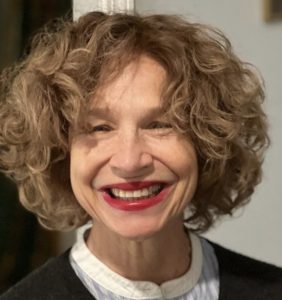Dr. Mandy Salomon is an entrepreneur working at the intersection of creative media, human-computer interaction and cultural gerontology to build next-generation tools for people living with dementia and those who support them.
As Mentia’s co-founder and CEO, Mandy’s focus is applying innovative technologies to solve the large-scale senior care challenges of scaling expertise and up-skilling care staff for better health outcomes.
Dr. Salomon received her Ph.D. at the Swinburne University of Technology in Melbourne (Australia) for her work on inclusive design for people with dementia, and for developing digital systems that enable them to participate. While there, she conducted studies that showed the acceptance of 3D virtual worlds for people living with dementia and the psycho-social advantages of using them. Stirling University’s Dementia Services Research Centre (UK) selected Dr. Salomon’s research for its ‘Ideas today that will impact tomorrow” award, describing her work as ‘digital empathy’. She was also the recipient of the Smart Services Cooperative Research Centre’s ‘CEO award for Best PhD‘. Dr. Salomon also holds an MA in Media and Communication, and a BA in Drama and Visual Arts. She draws on an extensive body of work across television, radio, theater, print media, and applied research.
Mandy brought Mentia to the US in 2017, where it is a portfolio company at Launchpad Digital Health in San Francisco.
In 2018, Mentia was honored as a finalist in Sompo/Aging2.0’s search for the most promising high-impact startup in senior care. Dr. Salomon is a Research and Industry Fellow at Swinburne University, a member of Creative Aging San Francisco, and an Alliance member of Aging 2.0.
“Every day, I meet incredible people working to create cultural change in the dementia space, and I feel blessed that my varied career has led me to this period of transformation, and that I can support the change creatively and digitally. I invite anyone who knows the pioneering work of the late Tom Kitwood – who argued that dementia is a social condition, as much as it is a neurocognitive one – to pause a moment. Think how excited he would be to know that ‘the help of healthy others’, which he saw as a foundation for well-being, is being fuelled by technology’s capacity to scale engagement, community, and understanding.”

